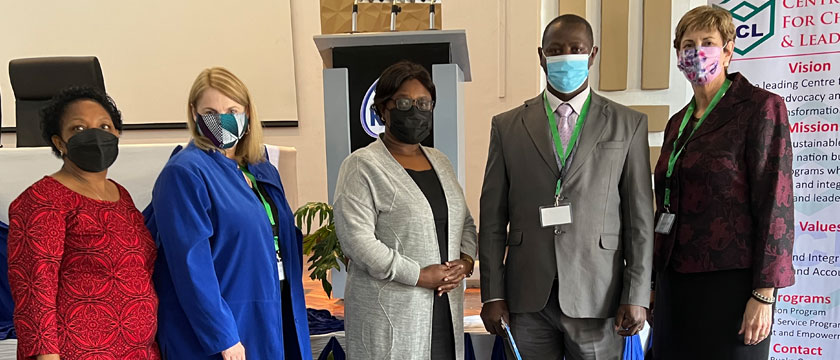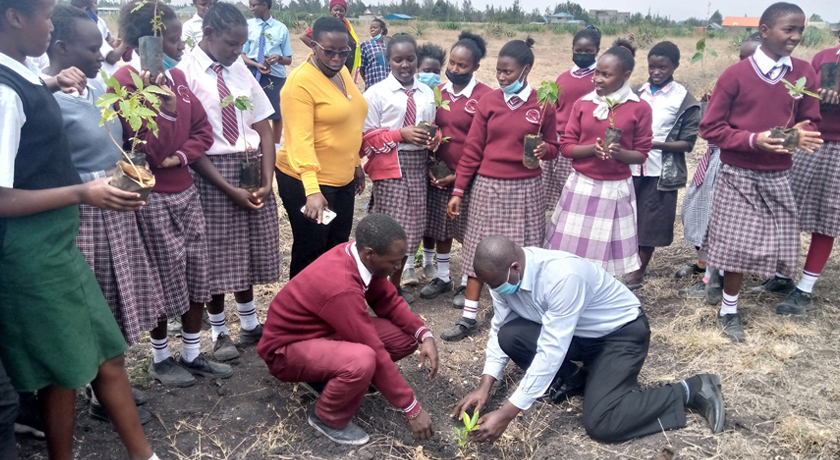A Cohort of Secondary School Principals from Nairobi County have completed a series of 8 virtual coaching and mentorship sessions on Cultivating Virtues for Leadership (CViL) as they wait for an online graduation. The purpose of CViL Coaching and Mentoring sessions is to help guide the school Principals on a personal and professional development journey. This is a journey of self-discovery and appreciation, a deep understanding of servant leadership virtues,
character education, and skills necessary to lead school transformation. The mentorship sessions were being hosted by the Centre Director for the Character Education Programme, Peter King’ori, in collaboration with stakeholders from the Center for Character and Citizenship (CCC), University of Missouri-St. Louis, Kenya Secondary School Heads Association (Nairobi County) and Teachers Service Commission (TSC) Regional Director in Nairobi County.
The Sixth coaching and mentorship session on ‘Believing in Yourself and Others: The Role of Self-Efficacy in Effective School Leadership’ was facilitated by Dr. Fatima Salas-Rodriguez, Post-doctoral Fellow, Center for Character and Citizenship, University of Missouri-St. Louis. Dr. Fatima presentation focused on the concept of self-efficacy as a core competency in the Competency Based Education. The discussion covered the importance of self-efficacy beliefs for Principals and teachers as well as their impact on school culture and student learning outcomes. The session concluded with practical advice for leaders to cultivate trust and build self-efficacy in educational settings, emphasizing the significance of growth mindset in leadership and providing feedback towards shaping students’ academic motivation, well-being and academic achievement.
The seventh coaching and mentorship session on ‘Leadership for Social Emotional Character Education’ was facilitated by Kim Bilanko, Principal, Ella Baker Elementary School, Lake Washington School District, USA. Ella Baker Elementary is recognized as a National School of Character. Ms. Kim urged the school Principals to practice the habit of listening as its helpful in knowing existing barriers in school culture. The discussion covered strategies for implementing character education, fostering positive school environments, integration of Social emotional learning skills and developing servant leadership approaches. The session concluded with insights on community service learning and its application in schools, emphasizing the importance of intentional role modeling and critical thinking in character development.
The eighth coaching and mentorship session on ‘Insights on Character Education Leadership from a Principal’ was facilitated by Brandi Hallemeier, Assistant Principal, Child of God Lutheran School. Brandi, a doctoral student at University of Missouri-St. Louis shared about her school Character journey which led to an award and recognition as ‘2024 Missouri State School of Character.’ She advised school Principals to prioritize on Character Education and embed it in school culture by even having a 5-year action plan as she said ‘ensure that Character Education is not just an abstract concept, but a continuous journey of self-Improvement.’ The discussion covered the PRIMED Framework which stands for: Prioritize Character Education, Build Relationships, Foster Intrinsic Motivation, Modeling, Empowerment and Developmental Pedagogy.



